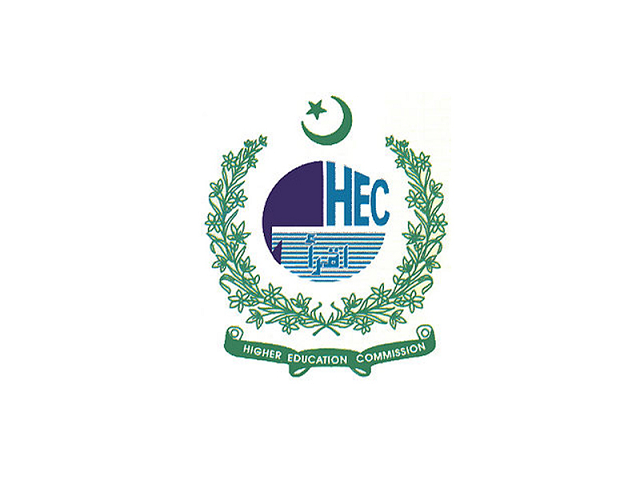One academic year, multiple admissions
HEC warns campuses not to offer admissions more than twice a year

HEC warns campuses not to offer admissions more than twice a year. PHOTO: EXPRESS
A new letter has been issued after anomalies were found by HEC’s quality enhancement teams in student admissions, financial management and issuance of degrees.
The letter has been written to all vice chancellors (VCs), rectors and directors of all public and private universities and has expressed serious concern over the state of affairs.
“Certain universities announce admissions and admit students three-to-four times a year and even enroll fresh students in summer programmes which are meant only for improvement of courses and fulfillment of deficiency,” said the letter.
HEC emphasises role of science education in economic development
The letter reads that no educational institute can admit students maximum twice in one academic year that is spring and fall sessions as per the policy. “It is neither allowed as per policy nor administratively and physically viable to run more than two academic sessions in one year,” the letter explains.
It advises all the universities to refrain from enrolling students more than twice in an academic year, rather advertise and enroll students in spring and fall sessions as per HEC semester system guidelines.
This is the first time that HEC has categorically mentioned about admissions conducted in universities more than twice a year. According to senior officials in HEC, the trend has been visible in Punjab and Sindh and is being followed “vehemently.”
A private university in Islamabad has already been banned from enrolling further students owing to such serious anomalies and “poor” recordkeeping.
The HEC has also advised universities to maintain proper and dedicated bank accounts for fee transactions of students. Universities have been urged to ensure all fee transactions through official bank accounts instead of collecting fee in cash or through any other method.
This is another way to draw off money by using unfair means in the universities. Legal and authentic channels are avoided to keep the finances away from the eyes of auditors and HEC quality monitoring teams.
In 2016, HEC also warned universities that appointment of key positions like treasurer, registrar etc should be on merit instead of appointing ‘blue-eyed’ that leads to “problems of governance.”
Higher education body’s budget slashed by 50%
Another serious irregularity is that “many universities have been issuing academic transcripts to students from its principal seat without mentioning the actual place of study from where the students have completed their educational progress.”
It is one of the tactics of the universities to keep the sub-campus off the radar of HEC which allows and attests degrees of institutions that can function if they have been issued no-objection certificate (NOC) by the former.
At present, there are over 100 illegal campuses and institutions that are running in the country without NOC from the HEC and most of them claim affiliation with renowned universities.
The letter also emphasises “due diligence must be exercised” in issuance of degrees and transcripts and HEC-prescribed semester guidelines be complied with in letter and spirit before issuing any transcript or detailed marks certificate to students. “All transcripts must reflect the actual place of study of the students accurately to save the students from inconvenience during their degree verification process,” the letter underlines.



















COMMENTS
Comments are moderated and generally will be posted if they are on-topic and not abusive.
For more information, please see our Comments FAQ